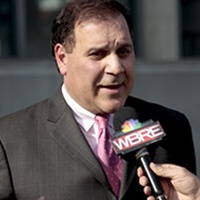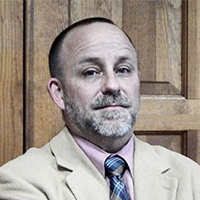 Freeland DUI-DWI Lawyers, Pennsylvania
Freeland DUI-DWI Lawyers, Pennsylvania
Sponsored Law Firm
-
 x
x

Click For More Info:
-
Keches Law Group
122 Dean Street Taunton, MA 02780» view mapSocial Security, Personal Injury, Workers Comp. Protecting Your Rights
Our team of experienced personal injury attorneys has over 130 years of combined experience representing individuals and families injured due to the negligence of others.
800-713-8650
Sponsored Lawyers
1-10 of 13 matches
Criminal, DUI-DWI, Accident & Injury, Social Security, Motor Vehicle
Attorney John B. Pike has been representing clients in Kingston, PA and throughout the surrounding Northeastern Pennsylvania area for over 25 years. John B. Pike, Attorney at Law offers legal services across a broad range of practice areas, with a particular focus in Car Accident, Criminal Law and Social Security Disability cases.
(more)Criminal, DUI-DWI, Misdemeanor, Felony
Over the past 30 years, Joe D’Andrea has earned a reputation as one of the premier criminal defense attorneys in Northeastern Pennsylvania, while aggressively defending the rights of individuals charged with various felonies and misdemeanors in both State and Federal Courts. Throughout his career, Scranton criminal lawyer Joe D'Andrea has zealously represented hundreds of individuals, corporations, and business entities that have been accused of crimes, which include, but are not limited to, Murder, Vehicular Homicide, Manslaughter, Rape, Delivery and Possession with Intent to Deliver a Controlled Substance, Child Pornography, DUI, White Collar Crimes, Assault, Arson and Forgery. Based upon his proven results and prolific reputation, Joe has had the pleasure of representing a diverse client base, which includes political officials, doctors, lawyers, bankers, “average Joes and Janes”, students, and pro bono representation of indigent defendants.
(more)DUI-DWI, Criminal, Felony, Traffic, Misdemeanor
Paul M. Aaroe, II, Esquire. Over 30 years of experience. Personal and professional services. Son of Superior Court Judge Paul Aaroe. Dedicated to Honesty, integrety and knowledge. I can help you. Known as the DUI GUY by the courts, Attorney’s and clients, he knows the law. Call me NOW toll free - 1(877)-726-5529
(more)


 Sean Flaherty Taunton, MA
Sean Flaherty Taunton, MA AboutKeches Law Group
AboutKeches Law Group Practice AreasExpertise
Practice AreasExpertise



